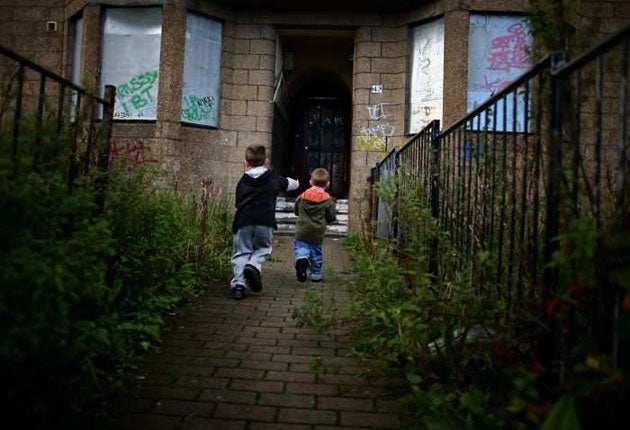One in three primary school teachers providing pupils with toothpaste or soap as parents struggle to make ends meet
'I didn’t come into the profession to see children suffer,' says head teacher

One in three teachers are providing pupils with basic hygiene products such as toothpaste and soap amid soaring child poverty rates, a new study shows.
Eight in ten primary school teachers have said they had seen a rise in the numbers of children coming to school unwashed or not looking presentable in the last five years and have found themselves intervening at an increasing rate.
A survey carried out by UK charity In Kind Direct also revealed nearly one in five (18 per cent) of teachers say they have to resort to doing this every single week, with the problem starkest in London – where 50 per cent do this weekly – and in the North East, where the figure stands at 29 per cent.
It comes as child poverty rates have surged in recent years, with one million more children in working households now growing up in poverty than did so in 2010, largely because of cuts to in-work benefits and public sector pay freezes.
Nicola Finney, head teacher at St Paul’s Primary School in Stoke on Trent, told The Independent around 18 per cent – or nearly one in five – of her pupils’ families were receiving products from the school, as growing numbers of households are “falling on hard times”.
“I’ve worked in primary schools for 12 years and I’ve definitely seen an increase over the last five years. It can range from seeing a child wearing the same shirt for a few days, or noticing that they haven’t washed when they get changed for PE. We won’t stand by if we know people are in need,” she said.
“It’s not always an impact on families that are on benefits – it can be self-employed families or those made redundant. More and more households are falling on hard times.
“It’s becoming part of my year on year budgets. We try to look at the budget very carefully to put that money aside to allocate towards these products. Staff are even buying extra bits to distribute it to families when they go shopping.
“I didn’t come into the profession to see children suffer. If we can help in any way that’s what we will do.”
Responding to the findings, Dr Richard Woolfson, a child psychologist, said: “Children’s self-esteem is greatly affected by the reaction of those around them – and if they are stigmatised, ridiculed or rejected by their peers because of poor basic hygiene, their sense of self-worth will quickly nose-dive.
“That’s why hygiene poverty has such a devastatingly negative effect on a child’s psychological development, not just on their health but also on their confidence, self-esteem, social relationships and class work.”
Government figures published earlier this year showed the number of children in poverty across the UK had surged by 100,000 in 12 months, with 4.1 million children living in relative poverty after household costs - the worst figures since the financial crisis.
A Government spokesman said: “We want all children to have the very best chances in life. We know that the best route out of poverty is through employment, and since 2010 an extra three million people are now in work and 300,000 fewer children are living in absolute poverty. Meanwhile, we spend around £90bn a year on working-age benefits, including for those on low incomes.
“We continue to support the country’s most disadvantaged children through free school meals. Additionally, £2.5billion funding is given to schools through the Pupil Premium to support their education.”
Subscribe to Independent Premium to bookmark this article
Want to bookmark your favourite articles and stories to read or reference later? Start your Independent Premium subscription today.

Join our commenting forum
Join thought-provoking conversations, follow other Independent readers and see their replies